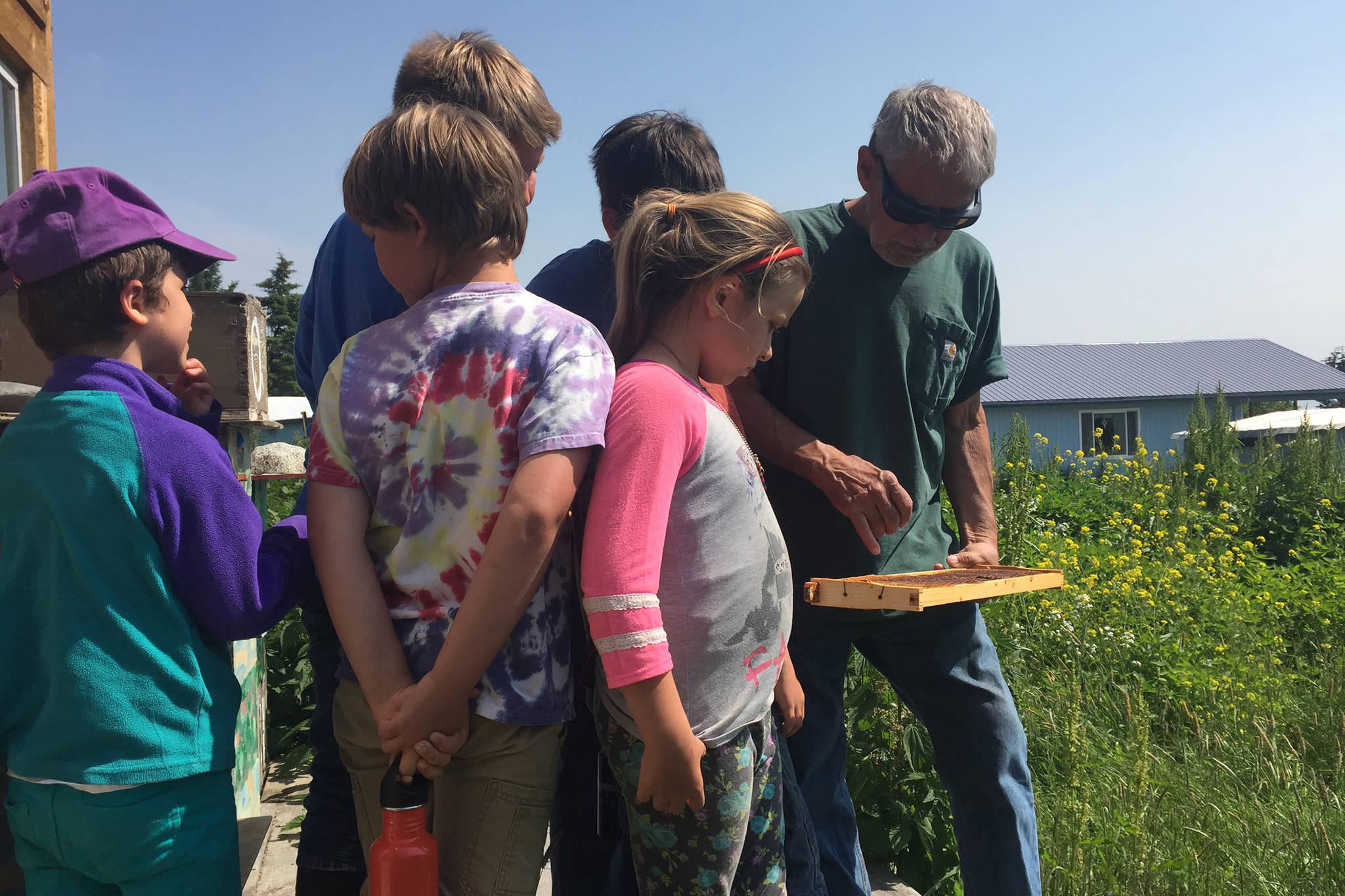Over the last couple of years, Homer has experienced a dramatic increase in the number of honey bee colonies kept in the city, providing Homer with more local honey and pollination for the city’s abundant fruit trees, raspberry patches and vegetable gardens. Despite these benefits, sometimes people discover that living with honey bees is not all sweetness and raspberries.
Despite the fact that beekeepers almost universally strive to avoid annoying their neighbors, bees can be nuisance. Here are a few suggestions you might want to consider if you are one of those (rare) annoyed neighbors. If you see honey bees in your yard and garden, relax. Foraging honey bees virtually never sting. If someone in your family gets stung, don’t immediately blame honey bees — it was, in fact, most likely a wasp.
Don’t worry about your kids — children generally have very robust immune systems, and one or a couple of stings (whatever the source) are painful, but almost certainly harmless. Severe allergic reactions to bee stings are extremely rare; however, if a person stung by a bee or wasp experiences difficulty in breathing and/or loss of consciousness, emergency medical help must be sought immediately.
Two common ways in which honey bees can be a nuisance are by swarming and by impacting non-beekeepers because of inconsiderate or thoughtless hive location. Honey bees swarm in order to start another colony in a new location. It’s a fascinating process to witness, but for people who don’t understand honey bee behavior, it is an understatement to say that encountering a swarm can be an alarming experience.
If it happens to you, the first thing to do is: Relax. Honey bees act aggressively in order to defend their homes — bees in a swarm are between homes. In essence, they are homeless vagabonds who lack a home to defend, and therefore they lack a reason to sting. There may be a lot of them, more than, perhaps, you wanted to see, but they mean no harm. Please do not spray them with poison.
The right way to deal with a swarm is to get in touch with a local beekeeper. Call longtime beekeeper Linda Gorman at 907-399-9211 or me at 907-235-3608. We can provide names of beekeepers who are willing to collect swarms and help relieve you of your unexpected guests. In the meantime, you might want to take a couple of photos (yes, you can closely approach the swarm) — someone will surely be impressed.
If the bees from a neighboring beekeeper are interfering with the quality of your life, discussing the problem with the beekeeper (if you know who it is) is a good place to start. If you can’t locate the source of the bees, or get satisfaction from the responsible party, contact Linda Gorman or me and ask them to put you in contact with a spokesperson for the local beekeeping community. An experienced beekeeper can be a useful mediator and advisor.
Honey bees are not simply beneficial insects; they are crucial to the existence of life on earth as we know it. Unfortunately for both bees and people, life on earth has been challenged by modern agricultural and industrial practices, and honey bees find it increasingly difficult to find a suitable place in the partnership of all living things.
Homer is not just a great place for people; it’s also a great place for honey bees. I hope in the years to come that we can all enjoy the benefits of honey bees without being inconvenienced by their proximity.
Rob Lund is a longtime Homer resident who has been keeping bees for nearly 50 years.



